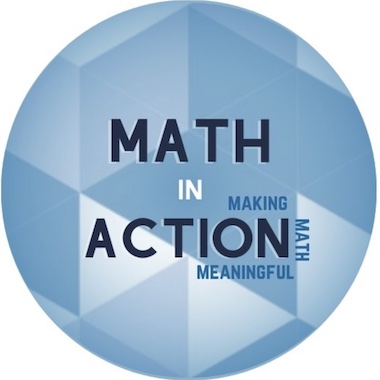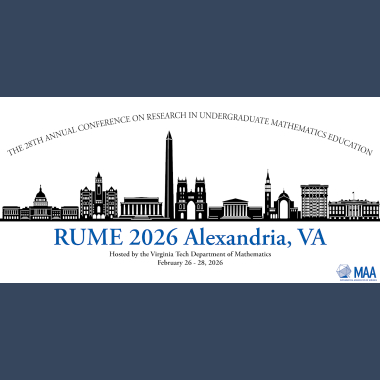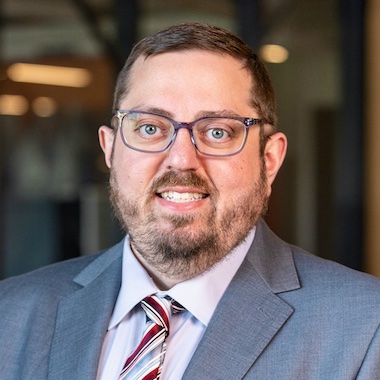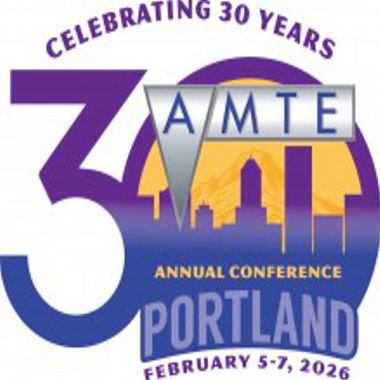Grad Reflections on summer research experience with PROSPECT
This article is adapted from two pieces that appeared in the August 25th Pulse of the PROSPECT PLCs (professional learning communities) Newsletter. The two graduate student research feature articles are included below with permission from MSU math ed doctoral students, Jose Contreras and Sabrina Zarza, as well as a Principal Investigator of the PROSPECT project and MSU math ed faculty member, Matt Voigt.
The project, Collaborative Research: Practices and Research on Student Pathways in Education from Community College and Transfer Students to STEM (PROSPECT S-STEM), is funded by the National Science Foundation.
Jose and Sabrina worked hourly in Summer 2025 with the PROSPECT project and team. Jose is now starting his third year in the MSU math ed doctoral program, and Sabrina is beginning her fourth year.
In this Q&A, Jose and Sabrina share their reflections on the experience, talking about the new challenges, what they learned along the way, and rewarding moments that made the experience memorable.
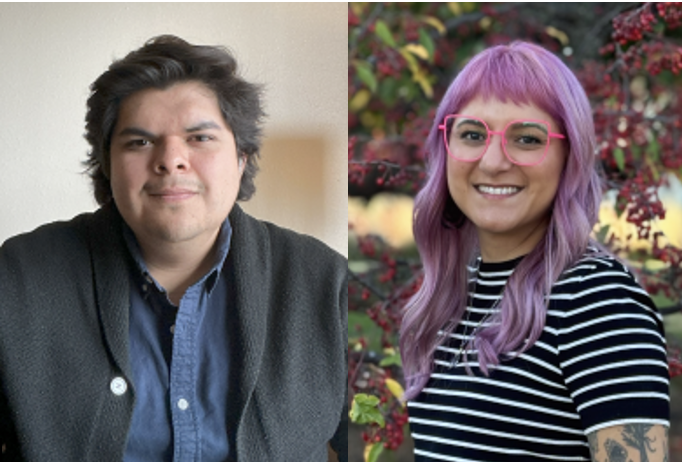 Jose Contreras and Sabrina Zarza
Jose Contreras and Sabrina Zarza
1. What sparkled your interest in joining PROSPECT and how would you describe your research focus this summer?
Jose: I approached Dr. Voigt about joining PROSPECT because I share a similar research interest in the student experience entering post-secondary education. Prior to this summer, I worked in TRIO programs as a tutor supporting low-income and first-generation high school students on their path towards higher education. I later worked as an in-class tutor for college math courses like algebra and trigonometry, which often serve as barriers for marginalized students attempting to complete STEM degrees.
My entry into education research was working on a proposal that investigated the practices and assets of an embedded tutor in a remedial math course. My work and research experience has focused on recognizing the strengths of marginalized communities entering STEM fields and understanding programs and mechanisms that support these students in navigating historically inequitable institutions. As a part of the PROSPECT team, I have utilized my background to analyze unique characteristics of an S-STEM program that has been successfully supporting students’ transfer from associates granting institutions to bachelors granting institutions and beyond.
Sabrina: My dissertation journey has led me to examine the structural aspects of universities, so PROSPECT’s investigation of transfer partnerships felt like a natural connection. I also began my own postsecondary journey at Fullerton Community College before transferring to Cal State Fullerton, where I earned my B.A. and M.A. in Mathematics. This research opportunity resonates deeply with my academic path and allows me to explore how institutional structures shape student experiences.
2. Was there anything surprising or unexpected in what you learned?
Jose: The most surprising finding from this research has been able to see how effectively these actors were able direct institutional resources towards their goals! My education background includes a minor in political science, and I have incorporated education policy into my doctoral course work which has bolstered my understanding of the power that individuals have in shaping and directing institutional resources. While historical inequities within higher education can be a product of incentives, disincentives, and leadership that can move without the urgency needed to tackle inequity, I was pleasantly surprised to study the practices of this S-STEM program grounded on centering the student needs.
While financial incentives are often present for transfer partnerships to set pathways from institution A to institution B, we have seen a partnership that molds their practices to support students to get to the place they need to be even if that is not at a partnered institution. It was unexpected to spend this summer listening to people who have used interpersonal connections and institutional resources so effectively to further equity-oriented goals. They are navigating institutions in a way that could be modeled by other institutional actors.
Sabrina: As someone who made the jump from community college to a four-year university with the support of just one (very dedicated) college counselor, I didn’t realize how formalized and intentional transfer partnerships could be. I’ve been pleasantly surprised to see the level of investment from faculty and staff who are committed to building and sustaining these programs to support student success.
3. What was the most enjoyable aspect of your research experience?
Jose: The experience has brought together a group of researchers with close values and goals that I have relied on for the community! It has been an absolute pleasure to be able to work alongside this research group because the values present in our research topic are present in the way that we carry ourselves in our interactions with each other. In particular, our research has touched on themes of holistic acceptance of people and recognition of the interplay between personal and professional lives.
It has been cathartic to be able to talk about the ups and downs of grad school with people who are empathetic and who make space in the research for the totality of what you are experiencing in life. It is commonplace to spend a significant amount of our meetings catching up, celebrating our good weeks, and finding support when we have our bad weeks. I found that working with people with similar values towards a collective goal is one of the best places to find community during difficult times.
Sabrina: I’ve especially enjoyed listening to interviews and hearing how positively people speak about their work. The student voices have been particularly powerful, hearing them describe their positive experiences in transfer programs has been both affirming and inspiring.
4. How has this experience shaped your thinking about research and how do you think it will contribute to your professional journey?
Jose: This experience has reaffirmed my commitment to working with others in the research process. I have found that I have been able to do my best work when I have been able to work collaboratively with others! Our ability to share our unique experiences and perspectives on the data and have this heavily inform the trajectory of our research has allowed me to take deep pride and ownership of this work. When we discuss and intersect our perspectives, we can produce knowledge that is richer and more interesting than it would have been if we had a singular perspective driving the research.
This research experience has ensured that I will continue to seek out more collaborative research opportunities for the second half of my doctoral program. While I plan to enter the job market in a few years, I will ensure that wherever I end up, a culture of collaboration must be present and promoted.
Sabrina: This work has pushed me to think more deeply about the structural and relational elements that influence student success. Even partnerships at the institutional level often come down to the quality of relationships between colleagues, and those relationships can make a tremendous difference for students. I’ve also learned a great deal from the research team I am working with, professors and graduate students alike, whose collaboration and generosity of ideas will continue to shape my work well beyond my work on this team.
5. What advice would you give a student considering a summer research experience,
and why (or why not) would you recommend it?
Jose: My first research experience was a summer project that produced a conference proposal. This opportunity allowed me to interact with a research community that I would stay in for the next 5 years and was the steppingstone towards graduate school. I think that for anyone that is unsure whether they want to conduct research or go to graduate school, it is a perfect opportunity to get experience of the work of a researcher. If you are already committed to entering the research field, it is a great opportunity to make connections through presentations! This is also a great opportunity to show on future graduate program applications that you understand what research in your field looks like. Finally, for those in graduate programs, the summer is a perfect time to engage in research projects in related topics because you are often not taking courses at the same time. I found that I have been able to dedicate more of my time to a new research topic during the summer and my understanding of a topic is greater because of the simplification of focus.
Frankly, summer research experiences could be inaccessible because of other priorities in your life. It is possible that as a student you may need to prioritize other activities in the summer like earning an income. While there are research experiences that are paid, those opportunities are not always available. For example, my first research experience was unpaid, and I had the privilege to be financially stable to take the time to conduct the research anyways. It is best to seek out a trusted faculty member, mentor, classmate, or friend to help locate great opportunities that fit your research interests and your financial needs.
Sabrina: I’d encourage students to have open conversations with professors about their interests and the kinds of experiences they hope to have. Being clear and communicative can help you find the right fit. I highly recommend pursuing a summer research experience as it’s a chance to develop or fine tune research skills and build meaningful professional connections. It has also been really exciting to see how my contributions this summer have taken shape in our developing manuscript, which speaks to how supportive and encouraging the research team is.
